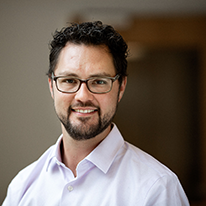
Although music is cross-culturally omnipresent with evolutionary origins far beyond 40,000 years of archaeological evidence, it remains a mystery why humans invest vast resources on creating and listening to music. Prominent theories propose that music becomes biologically adaptive by inducing social cohesion, signalling fitness to potential mates, consolidating bonds between infants and caregivers, facilitating coordinated manual labour, and by providing a mnemonic device for preserving communal knowledge. Yet, empirical evidence remains sparse and an overall framework uniting evolutionary theories with reference to underlying neurobiological mechanisms is missing.
Given its role in prosocial behaviour, pair formation, parental caregiving, physical stress reduction, and social memory, the neurohormone oxytocin offers an exciting and underexplored avenue in this regard. It is hypothesized that joint music making leads to oxytocin release which—as shown by the principal researcher and colleagues—enhances prediction and imbues behaviour with emotional significance.
Combining methods from evolutionary psychology, musicology, and neuroscience, this project aims to expand the evidence base for music as a complex, socially embedded, biologically underpinned, and cross-culturally universal behaviour, distinguishing humans from other animal species.
Project title:
Why humans make music: uncovering missing links in the behavioural and neurohormonal underpinnings of musical evolution
Area of research:
Psychology, Empirical Musicology, Cognitive Neuroscience
Fellowship period:
1 Feb 2020 – 31 Jan 2023
Fellowship type:
AIAS-COFUND II Marie Skłodowska-Curie fellow

This fellowship has received funding from the European Union’s Horizon 2020 research and innovation programme under the Marie Skłodowska-Curie grant agreement No 754513 and The Aarhus University Research Foundation.
